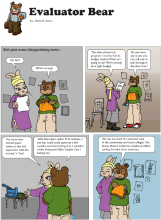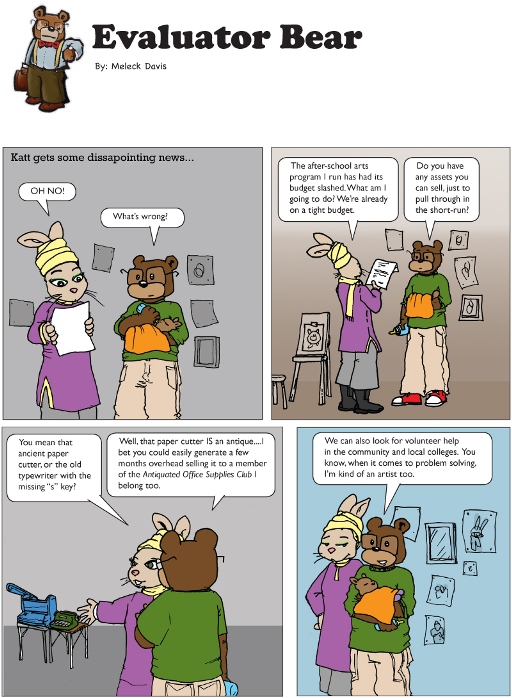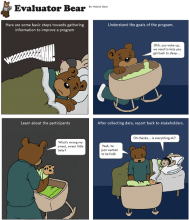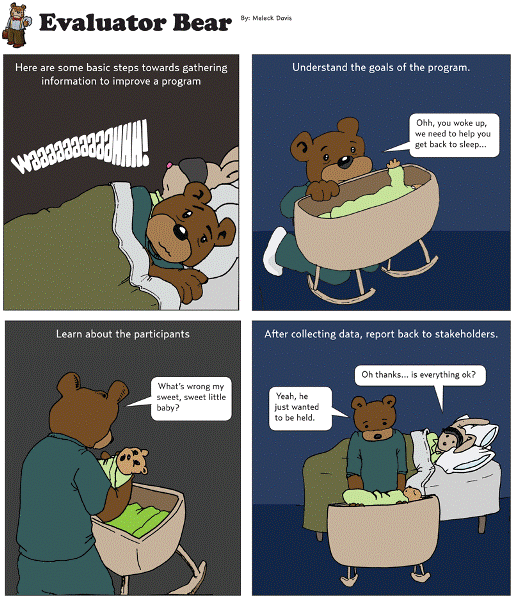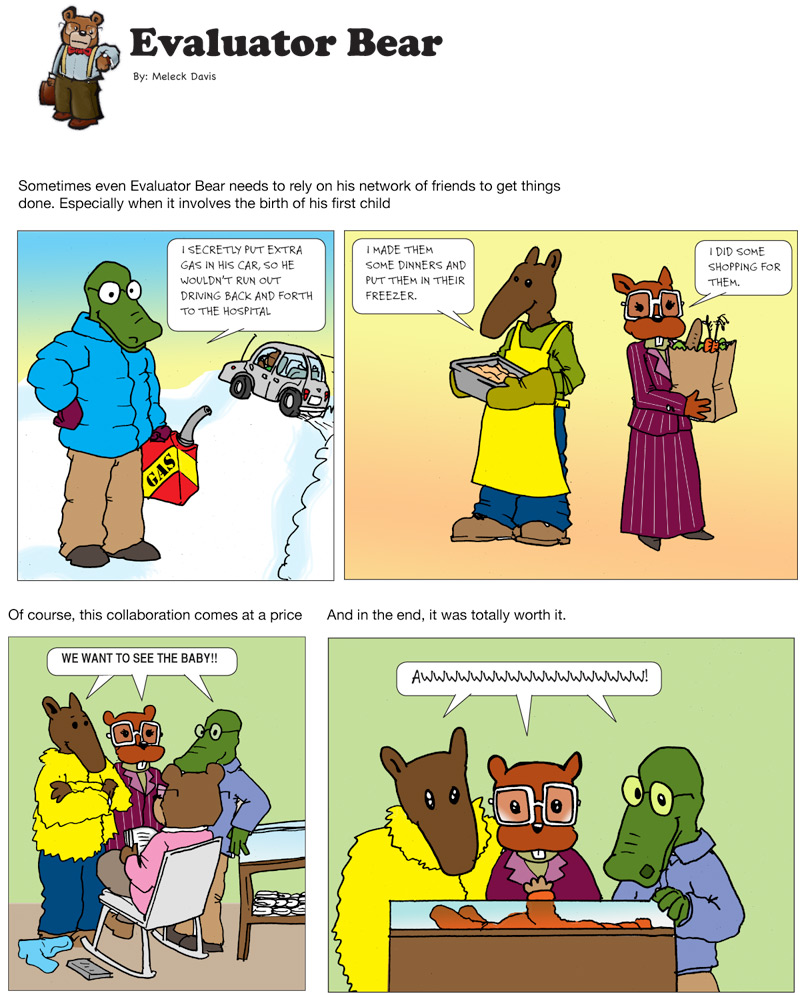April 26, 2011 - 2:29pm
Over the past few months, we have been following the discussions about public budgets as closely as anyone who works with programs that receive public funding. The stress that decision makers are under has been palpable. We have been saddened when programs that have demonstrated strong results have faced cuts, and also saddened to see people who we’ve come to know and care about face significant changes and losses.
March 24, 2011 - 1:41pm
Success in the affairs of life often serves to hide one's abilities, whereas adversity frequently gives one an opportunity to discover them. - Horace
January 26, 2011 - 5:47pm
January 26, 2011 - 5:40pm
When planning to integrate evaluation in your work, it can be helpful to reflect on the various responsibilities associated with evaluation:
| Responsibility | Who can do this? | |
| Identify key evaluation questions and priorities |
December 17, 2010 - 2:08pm
December 17, 2010 - 2:06pm
Non-profits experience unique challenges related to the implementation of new evaluations systems that depend on a host of factors, including organizational mission, size, structure and resources. Although the idea of normalizing evaluation practice may seem daunting at times, emerging research has identified strategies for evaluation capacity building that can be applied to non-profit settings. Here you will find a few key insights from this research.
1) Consider the motivation for implementing a new evaluation system
November 18, 2010 - 2:03pm
Do you have data that you’ve never really used because you just haven’t had time? Or you used it in one way, but know you could answer even more questions? For example, you’ve given trainings or facilitated groups several times, briefly reviewed any surveys you’ve collected, but never looked at the results over time. Here are three simple tips for getting more meaning out of your data in the context of your day-to-day work.

